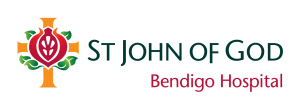A digital twin is a virtual model that replicates a physical structure, product or process. It is made by collecting or connecting data points to enable practical outcomes such as simulation, integration, testing, monitoring and maintenance.
Olinqua’s Digital Twin plays a crucial role in transforming hospital operations, by mapping data from building and asset sensors, staff schedules, electronic health records, disease registries and wearable sensors, and layering it to enable automation and insights that improve performance.
Olinqua’s powerful platform bridges the gap between historic data and current events, to provide context and insights that can be assessed for meaning and transformed into business outcomes.
By enabling the visualisation of data, Olinqua’s Digital Twin capabilities provide invaluable benefits to administrators, engineers, care providers and leadership teams.
With so much happening on a day-to-day basis in a hospital, it can be easy to miss the patterns.
Olinqua’s platform uses AI algorithms to analyse your Digital Twin and identify those patterns, recommending improvements to processes throughout every facet of operations and care.
Reduce the pressure on operational decision makers, and on tired and busy staff, by collating data in one place, enabling visualisation and empowering smarter, faster actions.
“It’s rare to find a business that you can’t fault, but this is one of them.”
Technical Success Manager, Digital Health Solution, Australian Hospital
Over the last five years, the rate at which hospitals have evolved and adopted new technology has rapidly increased. New software and hardware has been introduced to streamline patient care, improve record-keeping and enhance security.
And while this change is powerful and much-needed, any change in a hospital comes with significant risks.
A Digital Twin creates a safe environment in which to test the influences of changes on system performance – without incurring the same immediate, real world risks.
Hospitals are complex ecosystems made up of people, patients, processes, machines and a range of other elements, all of which require planning to ensure they operate optimally.
Olinqua’s platform allows staff to see what is happening now, in real-time, and uses data-driven AI to predict what will happen in the future.
Actionable events like bed shortages, spreading of germs, staff schedules, and operating room availability can be predicted and optimised to improve patient care, cut hospital costs, and increase staff performance.




